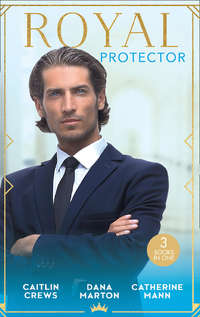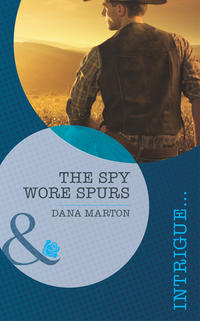
Полная версия
Undercover Sheik
She’d gone only a few yards from Nasir’s tent, dodging the men who were going about their business, when Ahmed spotted her and strode over, his fat mouth set into a thin line of displeasure. He marched his pudgy body through the sand with jerky steps, keeping his small, dark eyes on her, yelling from afar. “Woman! Whore!”
She stopped, hoping he wanted nothing more than to give her some small, humiliating task as usual, like scraping goat dung from his sandals. She would quickly do whatever he required. Tonight she’d be free. She couldn’t allow anything to get to her.
“You feed camels. Water camels,” he said.
Taking care of the animals was his responsibility—every man had his own task to keep the camp running. He was probably angry that Nasir had stopped her execution. He was probably looking to reassert his authority over her, to show her that as long as she was in camp, she would remain their slave.
Sadie nodded, the very picture of obedience, and cast a worried glance toward the camels, making sure she looked fearful, hoping that would be sufficient. Ahmed usually left her alone once he figured he had tortured her enough for one day. If he thought the task left her trembling, he might be satisfied with that and not think up any further ways to distress her.
The animals were twice the size of camels she’d seen in Yemen at the market where the local Doctors Without Borders liaison had taken the group of international physicians she was a part of the day after their arrival at the small field hospital.
The trip to the market had been the first and last that she’d been able to participate in. Three days later, the hospital was raided, the supply room robbed. She had the misfortune of being inside it when the bandits had come.
“Work,” Ahmed shouted at her and shoved her forward.
She moved obediently, semisecure in the knowledge that now that Nasir had claimed her, Ahmed could only demand work from her and nothing more. He had come to her during the night once before, insisting on another kind of service. By putting her body weight against the door of tightly tied branches, she’d been able to keep him out. Her prison, devised to prevent her from escaping during the night, had saved her.
He was yelling at her in Arabic, and she picked up the pace, walking toward the tent Ahmed shared with three others and the large bags of camel feed. She hadn’t seen Nasir’s shorter, leaner camel among the rest of the beasts. He’d probably ridden out of camp.
Her instincts prickled when instead of going off to enjoy having passed on his morning chores, Ahmed seemed intent on following her inside the tent.
“I feed the camels,” she said as she stepped through the flap, keeping her head down in an attempt not to anger any of the other men she’d expected to find inside.
The tent was empty.
She couldn’t step back. Ahmed was right behind her.
Get the work done, get out. Fast.
She went to the sacks, filled the bucket, moving purposefully, ignoring the bad feeling she was getting from the man who watched her.
He made his move as she was about to head back outside, blocking her way, looking at her with so much heat, so much hate.
“I’ll feed the camels,” she said and stepped forward to pass by him.
He wouldn’t have it.
She was close enough now to smell his breath, the sour sweat of his body. Several weeks’ worth of dirt was ground into his patched-up, faded camouflage uniform. She stole a glance at the look of determination in his face.
He was not going to let her go.
The dagger. Since she had the bucket in her right hand, she bent to set it down slowly, as if giving in to his will. But in a sudden move, he knocked the camel feed from her and had both of her hands pinned to her side. She struggled against him. He was strong, stronger than she’d thought.
“Stop.” She fought back with everything she had, kicking, trying to smack her forehead into his face, doing anything and everything to make up for not being able to use her hands. “Let me go!” Desperation gave strength to her voice.
The carpets tangled under their feet, making it harder for her to find her balance. She twisted and kicked backward, got him in the knee by pure chance. His hold loosened at last. Almost clear. Then she tripped on her robe just as he grabbed for her, and they went down together with a solid thud that stole the air from her lungs.
Chapter Two
“Civilian casualties will be significant.”
Majid glared at the man who dared to voice his ridiculous concern. When a sculptor created a beautiful piece of art, was he criticized for the marble chippings he left on the floor? “If anyone dies, it’s the usurper’s fault. The people will understand that.”
And once he was king again and the media was under his thumb, he would make sure everyone would see it his way. Casualties. Of course there’d be casualties. Bismillah! He was reshaping his country.
Those who committed treason should suffer. How quickly they had jumped to the usurper’s side, forgetting their lawful king. They should be punished. The leaders of the traitors would be rounded up and taken care of—certainly his cousin’s family. The others he would let live. He needed people if he wanted to collect taxes. He needed workers for the country he was even now preparing to birth.
“How many men do we have?” he asked his temporary council.
His secret advisors consisted of a few sheiks whose tribes were involved in weapons smuggling and as such benefited from his venture. Also those to whom he had promised land, and two semiinfluential industrialists who hoped for sizable oil contracts from his government once he was restored to the Beharrainian throne. All were enemies of the current false king, people he had angered by interfering with their business and limiting their income.
Today they all gathered to talk war in the large cave Majid was using as his headquarters at the moment.
“We have ten thousand men,” the oldest of the sheiks said.
“That’s enough.” Saeed had less than that when he’d stolen the throne four years ago from Majid. He would pay for that. “Once that devil’s spawn of a cousin of mine is dead and the palace is ours, the army will switch sides and follow their rightful king.”
That’s how it had been before—a lesson he had learned well. His entire army had deserted in a single day, seeing Saeed’s rising power, fearing for their worthless hides. They were disloyal to Majid before. They would be disloyal now to Saeed.
“The time is here, my friends,” he said as a calm settled over him. To rule was his destiny. “We will cut off the head of the snake and stomp out his nest.”
Saeed, the false king, would soon be executed and so would his whore, his American wife.
He would spare only Salah, Saeed’s son, eight years old now and fancied to be heir. For him, he had other plans.
His three-year-old twin daughters couldn’t be allowed to live, either—they might have sons when grown. Nobody who could ever claim any connection to the throne and come back to haunt him would be left alive. That included Nasir, the king’s brother. He was the more dangerous of the two. Had he taken any wives yet? Had he sired any children? He would have to be looked at carefully.
Majid took a sip of spiced coffee, then set the cup onto the stone ledge by his side. The first time he took the throne, he’d been lenient with his cousins. He would not make that mistake twice. This time when he was finished, they and everyone they held dear would be dead.
WHERE WAS SHE?
Nasir scanned the small camp. Her prison cell was empty. So was his tent. Of all the other tents, only one had its flap down. He strode toward that, fairly certain that he would find her inside.
She couldn’t have run away, not yet. The desert was void of life around them as far as the eye could see. She couldn’t have passed out of sight in the short time since he’d last seen her. And somebody would have noticed her walking away if she’d tried. Not that he didn’t think she would attempt to escape. But she wasn’t stupid. She would wait for a better opportunity.
The first sounds of struggle reached him when he was a few meters from the tent. He broke into a run, threw the flap open when he reached it and saw the desperate struggle on the floor.
“Ahmed!” Rage flooded him as he lifted the hefty bastard off the woman, threw him aside and stepped between the two, willing the man to fight.
“You had no right to her.” Ahmed spat the words and charged, his face red with effort and fury.
Nasir was ready for him, his body braced. Ahmed had the advantage of weight, but the disadvantage of inexperience. Nasir ducked his blow.
Ahmed would be trouble over and over again until dealt with. Over the past weeks, he had developed a deep-seated hatred for Nasir. The man was way too hotheaded. Nasir relaxed his limbs and focused on the fight. He could not allow anyone to put his mission in jeopardy. He watched his opponent, noticing the way he shifted his weight and planned his next attack to come in low.
The only way to stop him for good was to kill him, but Ahmed was a distant relative of Umman, and Nasir couldn’t afford to turn the camp leader against him until he got what he had come for.
“Son of a whore.” Ahmed charged again.
Nasir turned, twisted so the man missed with the second punch and stumbled outside through the flap, pushed by his own momentum. Nasir stepped after him, waited for the next attack and dropped the bastard, nice and clean—with admirable restraint—in front of plenty of witnesses.
Without checking whether Ahmed was getting up or not—he wouldn’t be…not for a while—Nasir stepped into the tent, grabbed Sadie by the arm and dragged her outside, making a show of it.
He couldn’t find a single look of disapproval among the men who were gathering around. Good. They understood his actions and accepted it.
“Come.” He pulled Sadie behind him roughly. They would expect that, for him to assume her guilt in the matter without questioning. Punishing her now for being in a tent alone with another man was his responsibility, his right, even if he deemed the necessary punishment to be death.
He shoved her inside his tent with great show but a gentle hand, then closed the flap behind them. Plenty of light filtered through the thinly woven side panels to see, the tent having been made to allow for the circulation of air.
“How bad did he hurt you?”
Her eyes brimmed with mistrust and fear. She pulled away from him a little too abruptly and backed into one of the tent poles, causing her headscarf and attached veil that had loosened in her fight with Ahmed to slip down now, coming to rest around her neck.
He was stunned by her short blond hair, barely covering her ears.
He didn’t like it.
It seemed indecent—long hair was Allah’s adornment for women. Still, for all that, the exotic color and shape suited her face.
She scrambled to cover herself, her eyes cast down, her fingers trembling.
“Leave it,” he said. She belonged to him now, his tent was her home—an odd and uncomfortable thought. But it meant that even according to the strictest customs she was allowed to go unveiled as long as it was just the two of them.
She hesitated in midmotion, the fear and mistrust on her fair face undiminished.
It annoyed him. Bismillah, he’d never given her a reason to fear him. “I had to act firmly.” He realized that he’d begun to pace, and stopped. “Umman’s men would expect you to be punished.”
Beharrain was on the path of progress, but in the outlying areas many people lived according to the strict rules demanded by Wahhabism. Majid’s supporters, in particular, claimed themselves to be staunch conservatives, although their backward ideas had little to do with old customs or the words of the Prophet. Because of them, one could still hear news of women killed for tarnishing the honor of their families. They considered rape a woman’s fault.
The American doctor lowered her arms and her head with them. And for some reason that defied logic, her supplication annoyed him.
“They expected me to be mad,” he said, wondering if she could truly understand. And he was mad, although not at her. He would have gladly strangled Ahmed. “Are you hurt?” he asked again.
She nodded and said after a brief pause, “Minor bruises. Thank you for getting me out.” But still, she wouldn’t look at him.
From a woman of his own culture that would have been a sign of respect. From her, that she was still afraid of him felt like an affront.
What did it matter? Whether she feared or despised him had no significance. He could and would see her to safety all the same. They had no business beyond that.
“The dagger?” he asked.
She fumbled with her robe and produced it after a few moments. “Couldn’t get to it.”
He could see why and cursed himself for not thinking of it before. The task was cumbersome. She had to gather up the folds of her long abayah first. He fixed the problem by stepping up to her and grabbing the black material, ripping a four-inch hole in the side where her hand could fit through if she needed to access the dagger in a hurry.
“That should do.” He hadn’t anticipated Ahmed to go this far this fast. At least the humiliation of his public loss should keep him in check for a few days. Nasir stepped back and prayed to Allah he wouldn’t need any more time than that.
In another day or so, the convoy they were all waiting for would be coming. He would do whatever it took to get Majid’s whereabouts from them. There was a connection between Umman and Majid, he was sure of it.
“Stay clear of Ahmed. As much as you can, stay in this tent.” He could not look away from the golden hair that curled at her nape and around her ears. He’d seen western women before—he’d been abroad on occasion and didn’t much care for it—but she was in his tent. “If you must step outside—” She would have to, if nothing else than to relieve herself. “Cover up.”
“How long before we go?” she asked, everything about her hesitant.
But he’d had a few glimpses of another woman, one that he suspected was the true Dr. Kauffman.
She’d been different when he’d first arrived to camp. And when she’d fought her executioner this morning, she’d fought like a tigress.
“A few days,” he answered her question.
Her gaze was cast at her feet, thick, dark-blond lashes shading her eyes. Perhaps so he wouldn’t see in them that she had no intention of staying that long. He said nothing, knowing it would be pointless to warn her.
She would do what she thought was necessary.
Then he would do whatever needed to be done.
NASIR LAY IN THE DARK and stared at the ceiling of the tent. It had to be past midnight.
The American woman, Sadie, had been gone for about two hours.
He didn’t blame her—he would have done the same—but neither could he let her go to her death. What did she know about the open desert?
He would wait another hour or two before he went after her—enough time for her to realize the mistake she’d made. She was on foot. She would be exhausted by then and lost. She would know she had failed. He had to wait that out—he couldn’t afford to watch her every second of the day. For her own sake, she had to accept that staying with him was her best chance for survival.
In general, he believed that the fewer foreigners in the country, the better. Most of them came to his part of the world for gain, at the expense of his people. He trusted only one, Dara, his brother’s wife, another American. Dara would want him to look after Sadie, but it wasn’t his only reason for doing so. He was Bedu and he lived by the code of the Bedu, the sharaf, part of which was protecting women.
There were some religious fanatics who considered only Arab women worthy of protection, not even the women, really, but their virtue. And if they deemed that lost, they thought it just and right that the woman should be killed, that they were worthless without it. Anger boiled in his blood at the thought. Never had the Prophet, blessed be his name, required the killing of the innocent.
He was conservative and proud of it. There was much in his culture he wished to preserve. But he had nothing to do with this new breed of religious devotees who sought to rule by terror, preach purity in the streets, then engage in the vilest acts of immorality behind their walls. And these fanatics who’d had free reign under the previous king were now plotting against the new ruler, Saeed, Nasir’s brother.
Nasir looked up to the ceiling of the tent and swore to Allah he would stop them. As long as there ran blood in his veins, he would protect his people and his family. And beyond them, he would protect all who needed his help. He was Bedu.
SADIE WALKED FORWARD in the sand, pulled her headscarf from her pocket and mopped her forehead that beaded with sweat from the effort. She’d decided to leave it off until the sun came up and grew hot enough to necessitate cover.
Her small pack of food and water seemed to weigh thirty pounds. She adjusted the sack over her back. She was thirsty, but was determined to ration what little water she had. She was tired, but resolved not to stop until sunup, to use every minute of cool air for walking. She moved forward toward a bright star she could not name. By keeping to it, she made sure she would go in a straight line instead of in circles.
Other than that one precaution, she was pretty much lost.
When she’d started out, she’d walked in the direction Nasir had rode in from a few weeks back. He had to have come from somewhere.
She hoped it wasn’t another bandit camp.
God, he confused her.
He was some grade A badass, to use an expression she’d learned from a ten-year-old boy she’d once treated for a broken leg in the ER. And yet, Nasir had saved her from execution, and then saved her from Ahmed. Why? For himself? He had claimed her. God, did he know what century this was?
He would see her to safety, he’d said. She wasn’t about to trust anyone who had anything to do with the people who’d kept her captive.
She glanced behind her as she had from time to time, although if the bandits came after her, she figured she would hear the motors of their pickups before she saw them. The moon provided enough light to walk by, but she could see only a fraction as far as during the day.
She yanked her right foot as it sank into the sand. The foot came up, her sandal didn’t. She leaned her weight on the other foot to search for it. The fine sand seemed to be crumbling around her, flowing like water. She tried to brace herself, waiting to touch solid bottom, thinking it a windblown spot where the soil was looser. She was in up to her knees before she realized the seriousness of her situation.
Quicksand.
“Help!” The terror-filled cry tore from her lips without thought, dousing her with desperation once it was out. Who could help her here? Nobody. There was none.
She tossed her bag clear, tried to tug her feet free, no longer caring about the sandals. But as soon as she made headway with one foot, the other sank deeper. She squirmed. No. She had to stop that.
Spread the bodyweight. She remembered some childhood advice on what to do if the ice cracked on the pond she and the neighbor kids had used for skating in the winter. The same principle should apply here. She lowered herself onto the top of the sand, hoping she could somehow crawl to safety.
But within minutes, she was in to her waist and knew there could be no way out.
Stop. Stop. She forced herself to stay still instead of madly scrambling like instinct pushed her. She held her breath, watched the sand. She was still sinking, but slower now.
How long did she have? She had sunk up to her chest in about fifteen minutes. If she hadn’t moved at all, could she gain another fifteen? What would be the use? What were the chances that someone happened along? Yet the instinct to survive would not let her give up. She grappled desperately for an idea as she held her body in iron control, utterly still, to buy herself as much time as possible.
Fifteen minutes.
She wouldn’t think of what would come after that. She was a doctor; she knew what it meant to die by suffocation.
She tipped her head to look at the stars.
The sand squeezed her, held her tight. She kept her arms above it, her neck stretched once she sank to her chin. A few more minutes. She took deep breaths to keep the panic at bay. Then the sand came over her mouth. The desert sand had the consistency of fine dust, unlike the gritty beach sand she’d known all her life, and it felt like drowning in talcum powder.
When the sand covered her nose, panic kicked in and she could hold still no longer. She thrashed, made it to the surface for another full breath, called out again, her subconscious mind flashing a name, “Nasir!” before she went completely under. She couldn’t stop struggling now even knowing each movement took her under faster.
Her lungs burned, stars growing and exploding behind her closed eyelids.
She clamped her mouth shut against the reflex to open and try to gulp nonexistent air.
As her hands, the last of her, went under, she clawed at the sand. She thought she heard a shout. Hard to tell over the blood that rushed loudly in her ears. Maybe the voice had been nothing but a trick of her oxygen-deprived brain. Then something solid brushed against the tip of her fingers, and she jerked to get back to it. She desperately searched around, clinging to the last few seconds of life she had.
A hand wrapped around her wrist and heaved hard. She started to come up little by little, her lungs ready to explode. She was barely aware now what was happening, focused with the last vestiges of consciousness on the strength of the hand that was pulling her back from death.
WHEN HE’D BEEN A CHILD, he’d had nightmares about quicksand—torturous dreams that had seemed to go on forever. He used to wake in terror, covered in sweat, gasping for air in the night.
Reality was worse, Nasir thought, and hung on to the slim hand, holding his breath under the sand. He jerked his right foot—he had dove in headfirst and his right foot was the only part still above ground—and yanked on the rope again, urging his camel to a faster walk. Ronu obeyed and pulled he and Sadie up, inch by slow inch.
Soon his head was free, and he took his first breath of air, coughed out the sand that had gotten into his mouth.
“Faster!” he yelled at the camel in Arabic and yanked the rope again.
The arm he held under the sand had gone limp.
He pulled with all his strength and once the hand was up, he let it go and reached below, hooked under her armpits. As soon as her head appeared, blue-faced and barely recognizable, he stopped and reached into her mouth with his fingers to clean out the sand.
He put his ear to her lips.
Nothing.
Ronu kept pulling. He paid little attention to the animal now, barely registering as they reached solid ground again after a few seconds. He called out to the camel to stop, then turned all his attention to the woman in his arms. He wiped his hand then reached deep into her throat with his fingers to clear it, flipped her over his arm, thumped her back to dislodge anything else that might be in there. When he turned her once more, he sealed his lips to hers and forced air into her lungs. He was probably blowing some sand into her air pipe, but he had to take that chance. If he succeeded in reviving her, she could cough that out.
He pulled away and pressed his ear to her chest. A second passed then another. He breathed for her again then swore as he waited for signs of life.
You should have come after her sooner.
He would have, but he had run into Ahmed, who’d been lurking around her old shack, and they’d had words. He had to make sure Ahmed was settled before he could ride off into the desert.









